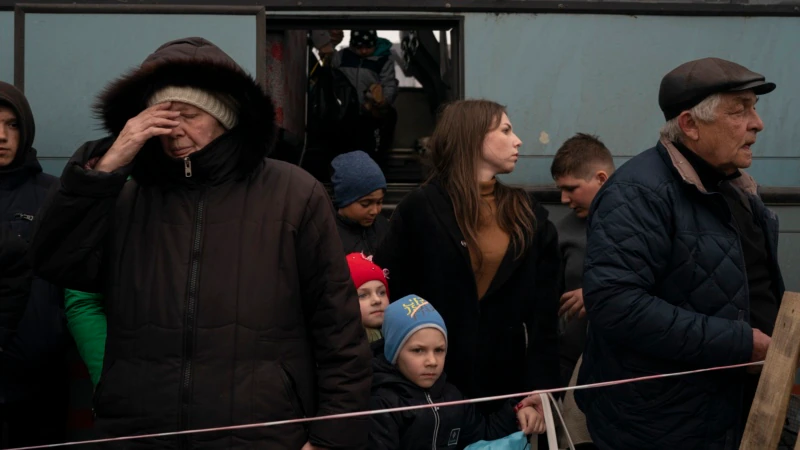The U.N. Children’s Fund, UNICEF, reports the war in Ukraine is having a devastating impact on children, with tens of thousands requiring psychological and social care.
Millions of children in Ukraine have suffered from more than two months of relentless bombing and shelling, a lack of food, the inability to go to school, and the loss of other essential services.
This psychological trauma, says UNICEF, has created a child protection crisis of extraordinary proportions.
U.N. agencies report more than 6,800 civilian casualties, including more than 3,300 killed. Some 7.7 million people have been displaced inside Ukraine and more than 5.7 million others have sought refuge in neighboring countries, including nearly two-thirds of all children in Ukraine.
Before Russia invaded Ukraine February 24, more than 90,000 children were living in institutions, orphanages, boarding schools, and other care facilities—nearly half of them are children with disabilities.
Speaking from the western city of Lviv, Aaron Greenberg, UNICEF’s Regional Child Protection Adviser for Europe and Central Asia Region, said tens of thousands of these children have been returned to families. Unfortunately, he said, many children are not receiving the care and protection they require, especially children with disabilities.
“The war has impacted all children’s psychosocial well-being. All of them,” he said. “Children have been uprooted from their homes, separated from caregivers, and directly exposed to war. Children have been shaken by bomb explosions and the blaring sirens of missile alert systems…. And, most importantly, many children have witnessed or experienced physical and sexual violence.”
Greenberg said UNICEF and partners are working to help these traumatized children. Since the war started, he said more than 140,000 children and their caregivers have received mental health and psychosocial services. He said UNICEF currently has 56 mobile units operating across the country, including in the east where fighting is most intense.
“Over 7,000 women and children have been reached by violence prevention, risk mitigation and violence response services, including GBV, gender-based violence, including in the eastern areas of the country,” he said. “But it is not enough. And although we are all working in overdrive, I think we must be prepared with more specialized services for child survivors of physical and sexual violence.”
Greenberg noted that children with disabilities have suffered disproportionately in this war and must receive urgent support. He added that the government, UNICEF, and partners are scaling up more services to these very vulnerable children.

